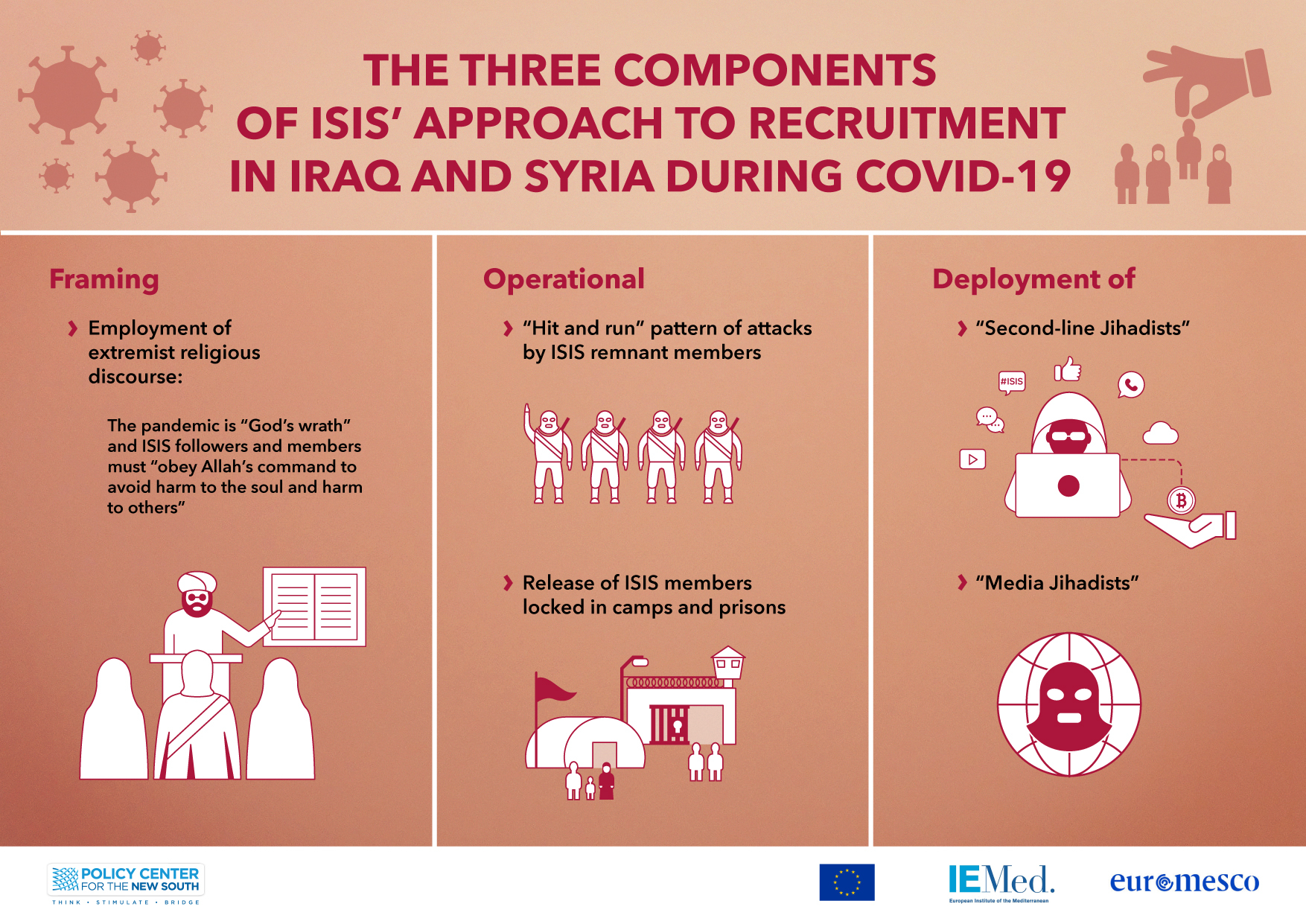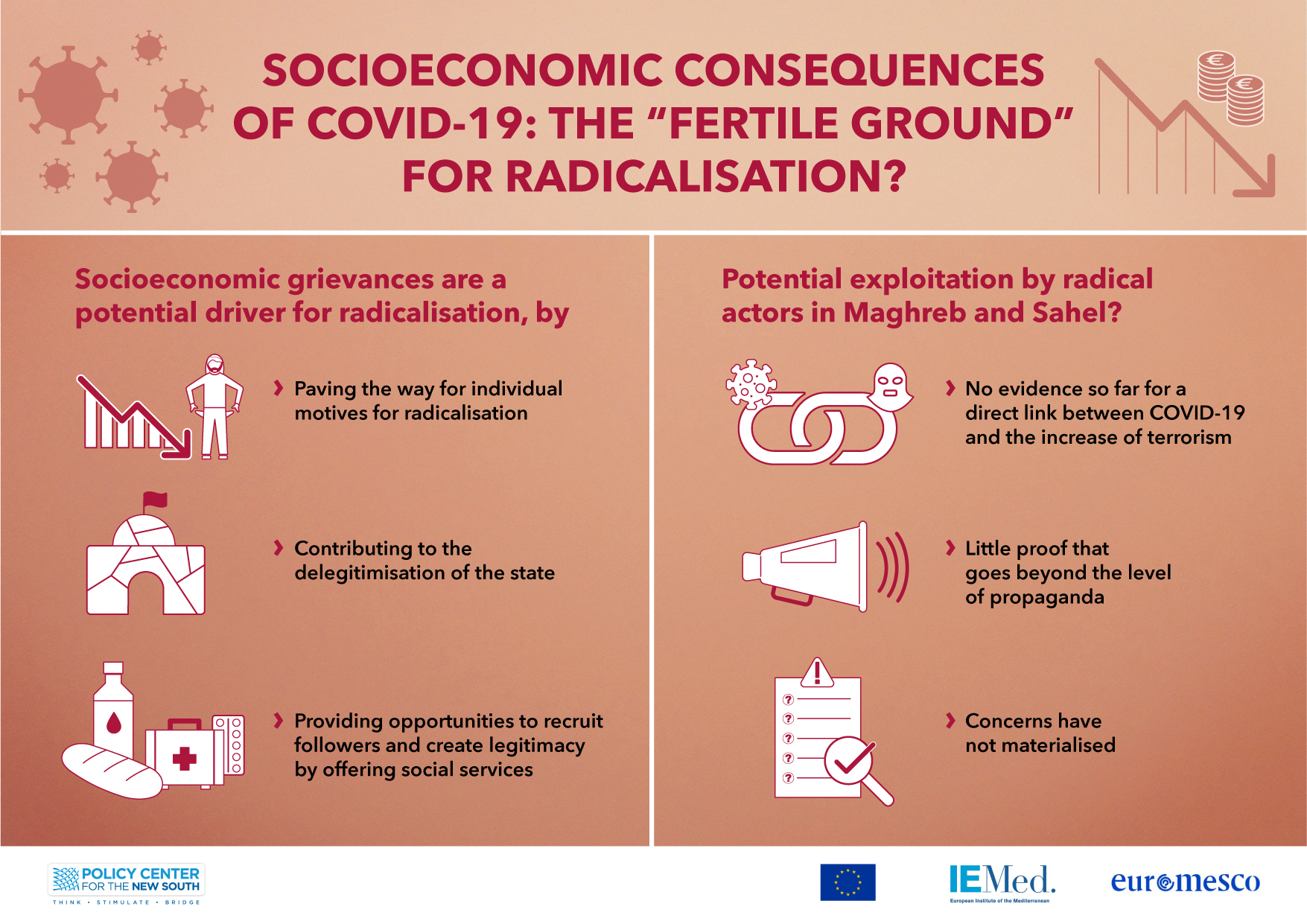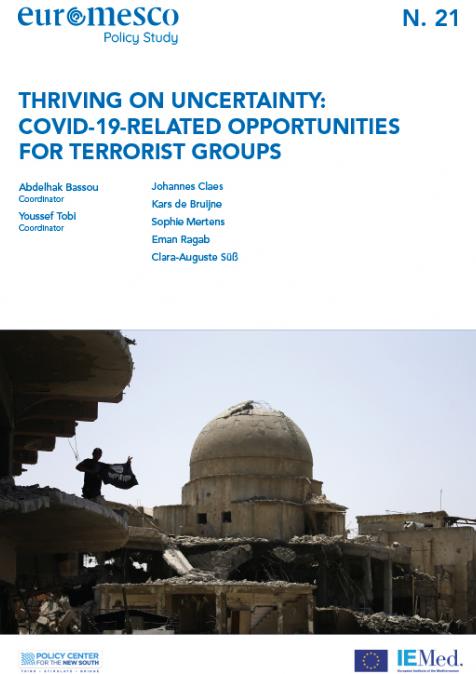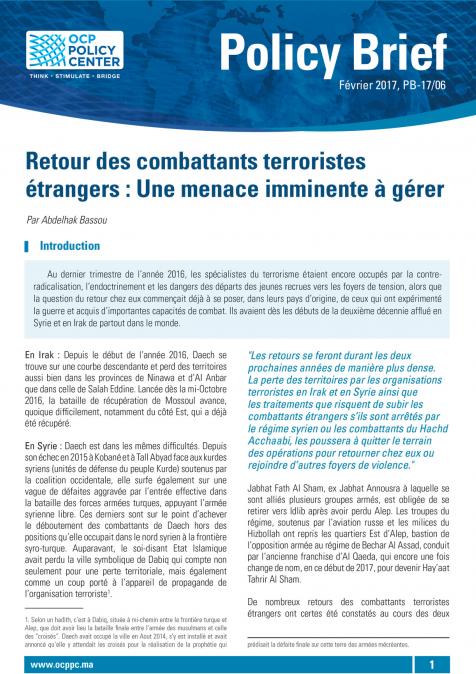Publications /
Policy Paper
The COVID-19 pandemic has had a cataclysmic impact on all aspects of the functioning of our world. The relevance of the possibility of the spread of a global virus with the spread of terrorism is not immediately obvious as it is difficult for a direct causal link to be scientifically established. However, taking into consideration how state responses and pre-existing socioeconomic grievances can be impacted by the COVID-19 pandemic can lead to innovative findings on how terrorist groups have adapted and conducted their activities during the pandemic.
Against this background, this study aims at examining the potential link between increasing threats of violence and terrorist activity and the spread of COVID-19, and subsequently proposes recommendations for the European Union to better understand and push back terrorist groups’ activities amidst the pandemic. The chapters in the study have adopted a particular regional scope related to the impact of the global pandemic on terrorist activity while addressing the topic through different levels of analysis: the first chapter examines the impact of the evolving COVID-19 situation in the Sahel region on both levels of extremist violence and responses by local and state authorities, by focusing on the pre-existing conditions that were already in place prior to the outbreak of the pandemic specifically in Mali, Niger and Burkina Faso. It then examines the potential longer-term implications in terms of the appeal of extremist groups in this context. The second chapter discusses the strategies adopted by terrorist groups to recruit new members and followers during the COVID-19 pandemic, with specific focus on ISIS and its affiliated cells in European societies and the Mashreq region, particularly Iraq and Syria. It also aims to highlight the “new” types of terrorism that ISIS has been urging its followers to practise amidst COVID-19. The last chapter of this study takes a similar approach of exploring extremist dynamics on the ground and related actors, state responses and policies, as well as the emerging socioeconomic consequences of the pandemic in the Maghreb region.


This Report was originally published by IEMed : Link









